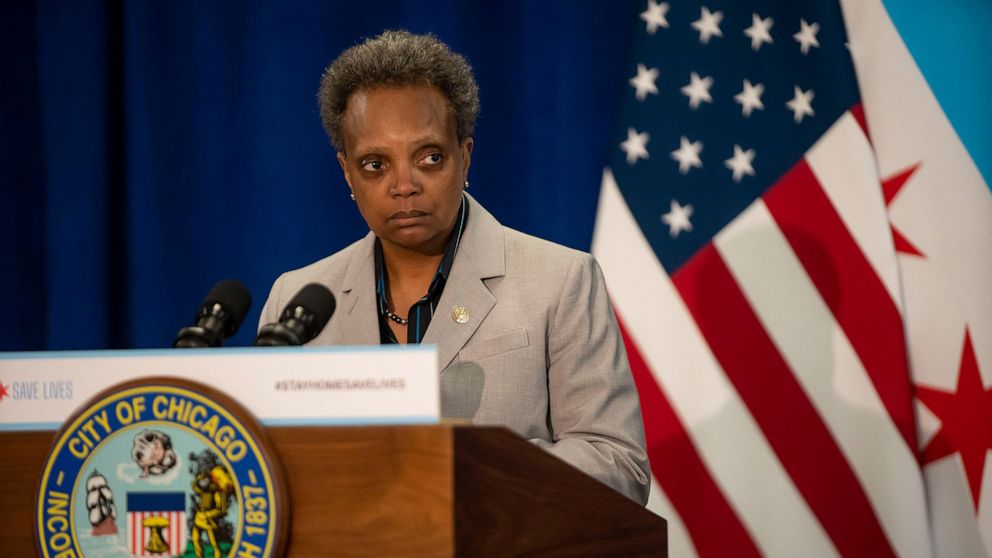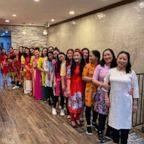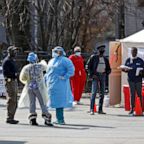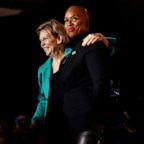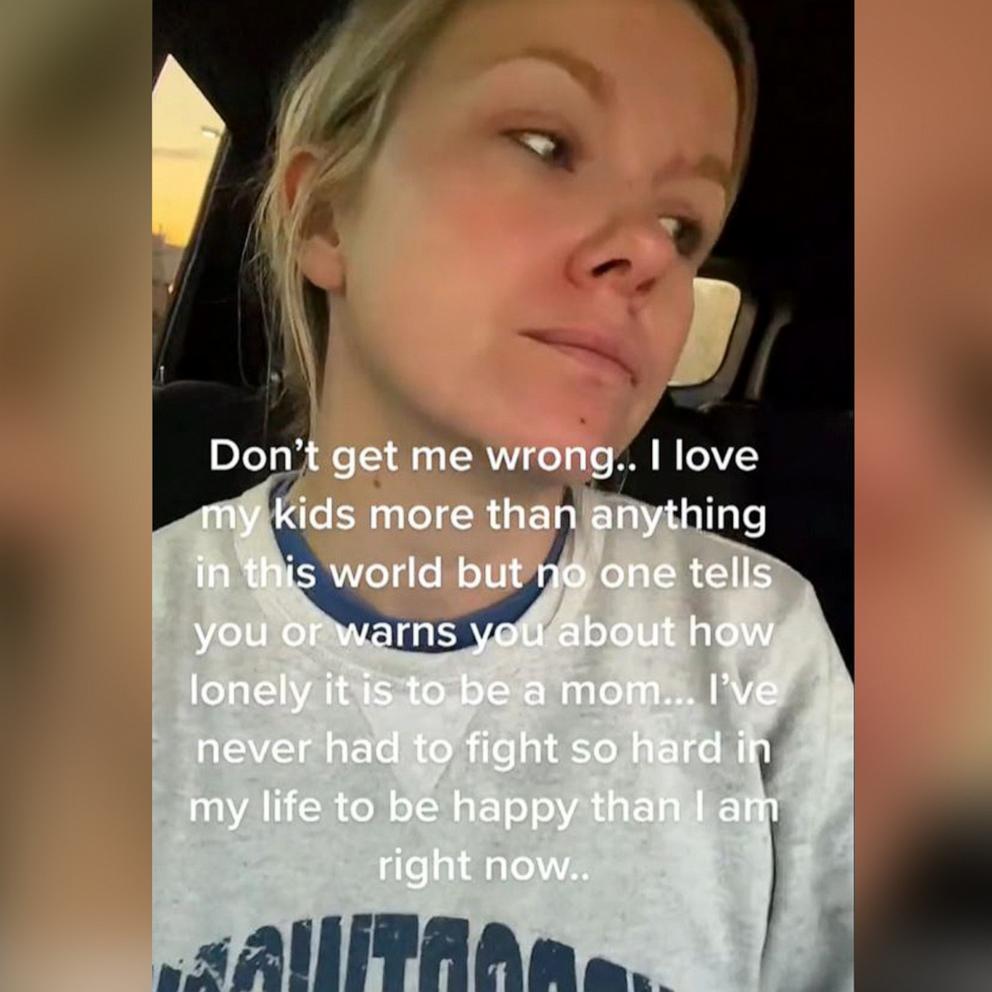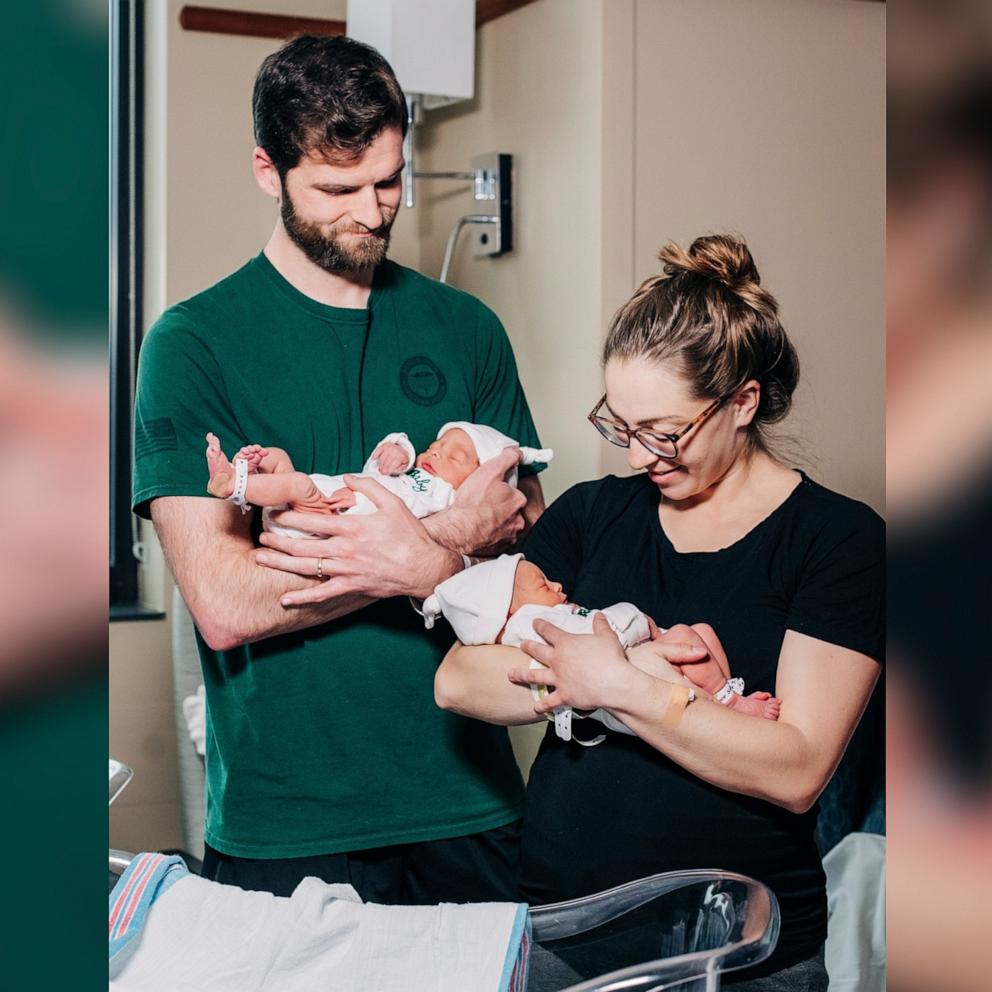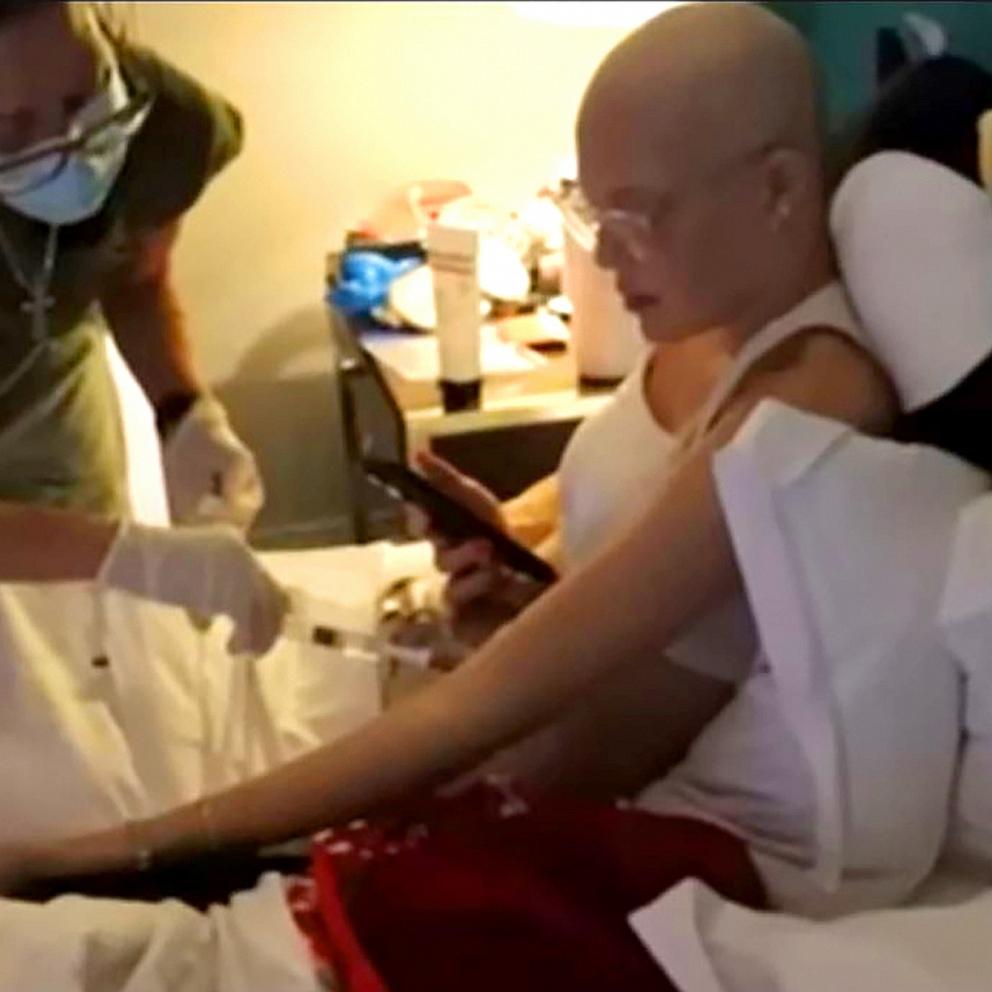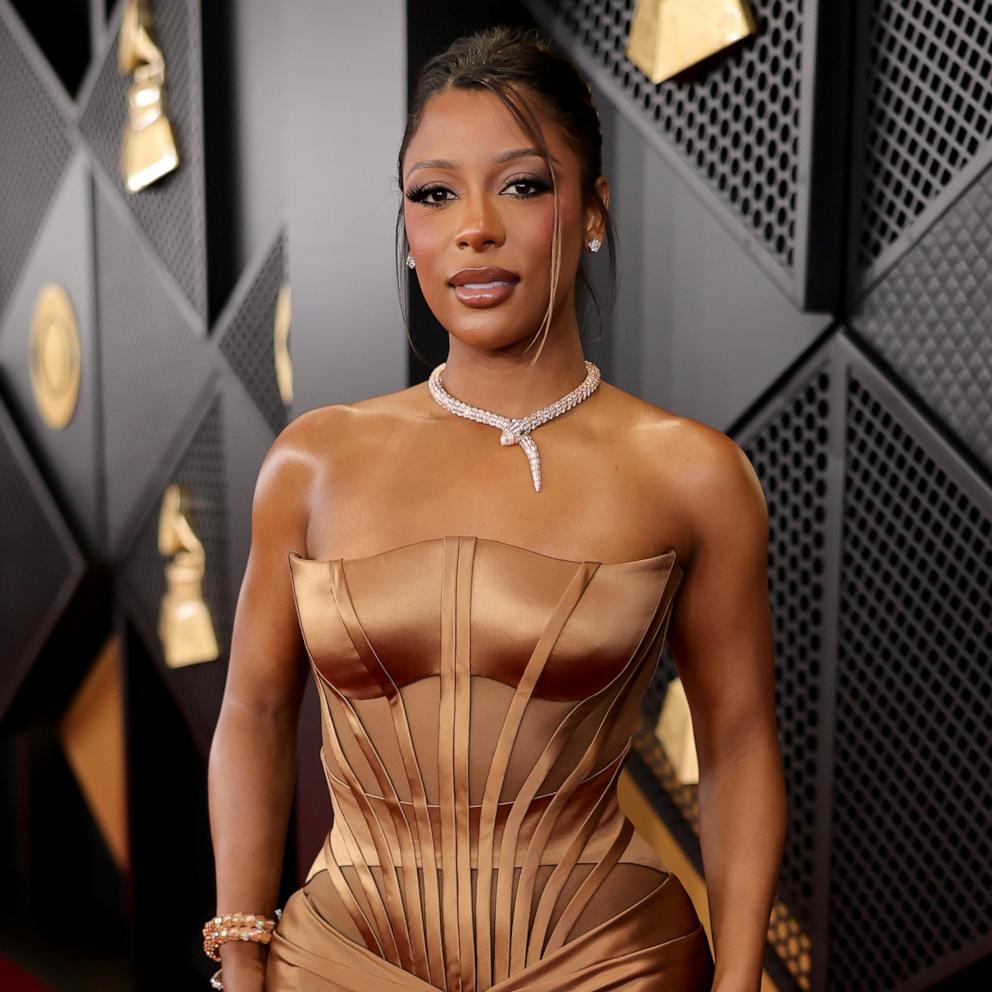African Americans in Chicago face double scourge: Coronavirus and gun violence
The Illinois stay-at-home order, mandating that residents shelter in place amid the novel coronavirus pandemic, has virtually shut down the city of Chicago, but according to the city's police department, gun violence is still on the rise -- some 24% compared to the same time last year.
The scourge of the pandemic and violence on top of that is dealing a double blow to the city and in particular its black population, which has been hard-hit by the outbreak of the coronavirus, officials said. And the gun violence appears to be exacerbated in part by people gathering in public despite the stay-at-home order, taxing a police department already stretched thin responding to COVID-19 response calls and dispersing crowds.
The department's chief spokesperson, Anthony Guglielmi, told ABC News on Wednesday that gun violence in Chicago “has been up overall, month over month” since December 2019, and although “the rate of increase was certainly smaller or less than it was attributable to COVID,” the “number of shooting incidents” are still up.
Tune into ABC at 1 p.m. ET and ABC News Live at 4 p.m. ET every weekday for special coverage of the novel coronavirus with the full ABC News team, including the latest news, context and analysis.
“It has certainly ebbed and flowed. We’ve had days where we had very little gun violence, if any at all, and then we had days like last night,” Guglielmi said.
‘The epidemic of gun violence continues to plague us’
Between Tuesday night and early Wednesday morning, 14 people were wounded, including a 5-year-old girl, and seven were killed by gunfire.
The weather was warmer that day, which, according to CPD, is the “biggest factor” when it comes to a rise in shootings. There were dozens of shooting victims in the city this week, per CPD.
Chicago Mayor Lori Lightfoot denounced the violence in an impassioned address at the top of her coronavirus briefing on Wednesday and said that “these actions place additional and non-necessary burdens on our hospitals and intensive care units.”
“Unfortunately, the epidemic of gun violence continues to plague us every day, every hour of the day,” Lightfoot said, adding that “violence of any kind is never acceptable,” but this is “especially urgent now as our ability to treat all Chicagoans is being stretched to the breaking point.”
Gov. J.B. Pritzker criticized the federal government’s handling of the pandemic last month, telling CNN that the state only has a “fraction” of the medical supplies and personal protective equipment (PPE) it needs to battle COVID-19 as they have had to compete with the federal government and other states to fulfill orders.
Editor’s Picks
The coronavirus death toll in Illinois is at least 597 as of Saturday morning, with more than 17,000 known cases of COVID-19 in the state and over 6,600 cases in Chicago, according to state officials.
“In the middle of this worldwide pandemic, our precious health resources need to be treating COVID patients and those needing acute care,” Lightfoot said. “Every day we are measuring our precious health care resources, ICU capacity. To be blunt, if our ICUs are filled with gunshot victims, our ability to respond to this COVID-19 crisis will necessarily be compromised.”
African Americans have been dying from the coronavirus at a higher rate than other racial demographics, according to several states’ analysis of data and that same is true in Chicago.
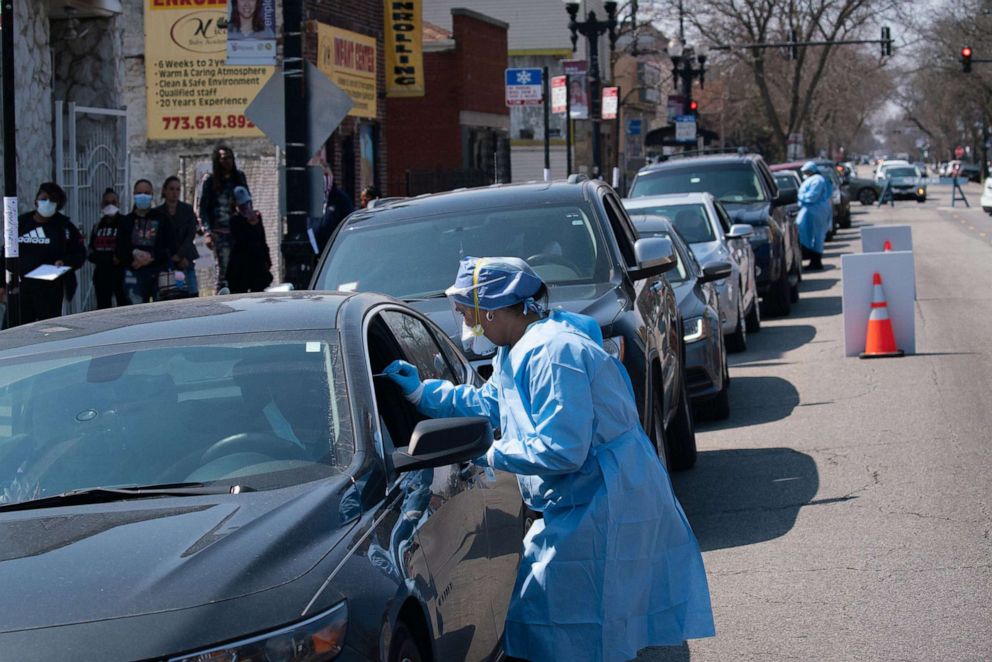
Some 58% of deaths from COVID-19 in Illinois’ Cook County were black though the population is 23% black, and 72% of Chicago deaths were black patients though the city is 32% black.
Lightfoot noted that those same communities are the ones facing the brunt of the gun violence epidemic.
“Just this week we talked about the disproportionate burden that black Chicago is facing with infections and deaths related to COVID-19,” she said. “These same communities continue to be plagued by gun violence. I’m here to say enough, enough, enough. Our whole city focus must be on saving lives from all public health crises, whether it’s the pandemic or the epidemic of gun violence.”
What the data shows
Although overall crime is down this year in Chicago, but during the week of March 30-April 5, there were 40 shooting incidents, compared to 28 incidents during that same time in 2019, the police department said.
From Jan. 1-April 5, there were 453 shooting incidents in the city, compared to 364 shooting incidents for that same time period in 2019. New York, by contrast, a city with three times the population, had 172 shooting incidents during the same time period (although shootings were up there -- 12% -- as well), according to city crime stats. Homicides for the same period are also up. From Jan. 1-April 5 of 2019, there were 92, compared to 103 during that span of time this year.
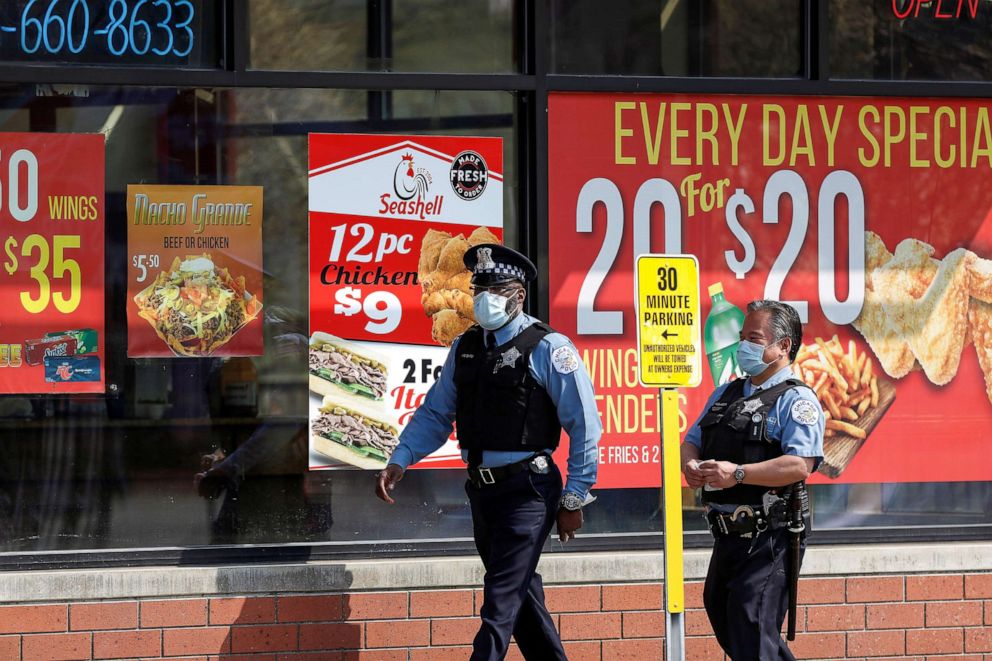
This increase in violent crime is having an impact on the city's police force.
Amid the COVID-19 pandemic, policing in the city has “profoundly changed,” Guglielmi said, something that has been the case in police departments around the country.
“What I mean by that is you’re not only doing your traditional job of safekeeping communities and neighborhoods and fighting violent crime but you’re now becoming public health officers," he explained.
Officers have been working to disperse large groups of people and implement infection control protocol by educating residents about the risks of breaking social distancing guidelines amid COVID-19 and even distributing informational fliers during checkpoints and traffic stops.
What to know about coronavirus:
- How it started and how to protect yourself: Coronavirus explained
- What to do if you have symptoms: Coronavirus symptoms
- Tracking the spread in the U.S. and worldwide: Coronavirus map
In some cases, those crowds have been targets for assailants.
“Shootings into crowds without any regard for the consequences is the most heinous form of cowardice,” Lightfoot said on Wednesday. “I’ve directed the police department to spare no expense of resource to bring the perpetrators to justice and we already have some promising leads.”
While the vast majority of residents are complying with the guidance, “there are cases where people don’t comply,” with groups congregating at places like liquor stores and in areas where there is heavy drug trafficking activity, Guglielmi said.
Per CPD, since March 25, through Thursday April 9, Chicago police had issued 2,264 dispersal orders, 11 citations and have made 17 arrests related to non-compliance with the COVID-19 stay-at-home order.
The West Side of the city, which “has some challenges with narcotics, trafficking and drug dealing,” has been “outpacing the vast majority of Chicago” in terms of dispersals, Guglielmi said.
